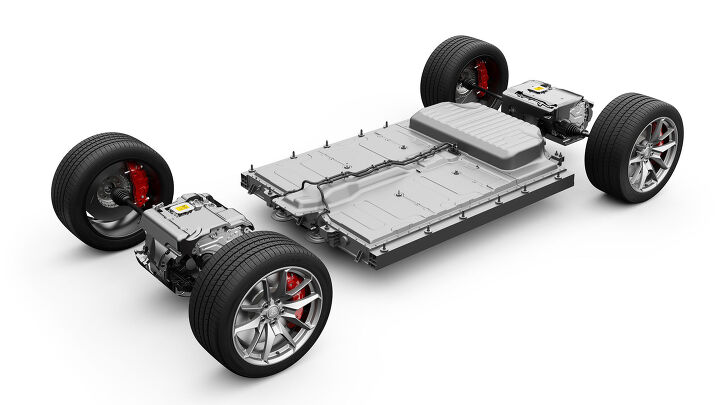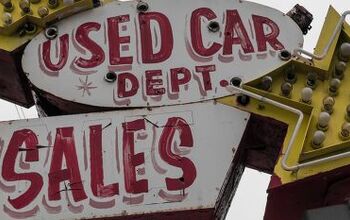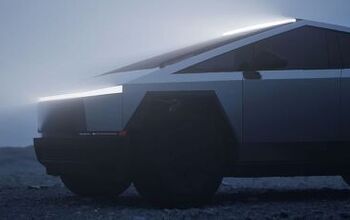Stellantis is Dropping Billions on Ethanol Tech in South America

Dodge is in the news this week with its new Charger, which will be offered with gas and electric powertrains. While the automaker’s parent company is moving toward electrification, it remains dedicated to internal combustion, announcing that it would invest billions in a new engine that runs on ethanol. The automaker said its investments in South America, specifically Brazil, show its confidence in the continent and a desire to reduce emissions with bio-hybrid technologies.
Stellantis said the engine could power up to 40 new models and noted that the design allows it to slot into the company's existing factories in South America, reducing costs. The first flex fuel vehicle is due out late this year. Stellantis will eventually offer three variations on the theme, including a hybrid, a plug-in hybrid, and a full EV.
South America is a significant market for Stellantis, where sales of Fiat buoyed the brand’s bottom line and helped make it the company’s best-selling brand. The automaker said that it leads Brazil, Argentina, and Chile in sales, exceeding 878,000 units last year and giving it a 23.5 percent market share.
Stellantis, at least in America, is the house that Hellcat built, so it’s unclear if these technologies will make their way to our shores. There have only been a few EV announcements from the company, but it’s moving away from the rowdy V8s of the last several years into smaller turbocharged applications and plug-in hybrids.
The Dodge Charger might not be the most appealing to gearheads, but the electric and gas versions don’t give up much performance to achieve their lower emissions. The electric Charger Daytona has up to 670 horsepower and a 3.3-second 0-60 mph time, while the Scat Pack configuration can cover the quarter mile in 11.5 seconds.
[Image: Stellantis]
Become a TTAC insider. Get the latest news, features, TTAC takes, and everything else that gets to the truth about cars first by subscribing to our newsletter.

Chris grew up in, under, and around cars, but took the long way around to becoming an automotive writer. After a career in technology consulting and a trip through business school, Chris began writing about the automotive industry as a way to reconnect with his passion and get behind the wheel of a new car every week. He focuses on taking complex industry stories and making them digestible by any reader. Just don’t expect him to stay away from high-mileage Porsches.
More by Chris Teague
Latest Car Reviews
Read moreLatest Product Reviews
Read moreRecent Comments
- Theflyersfan With sedans, especially, I wonder how many of those sales are to rental fleets. With the exception of the Civic and Accord, there are still rows of sedans mixed in with the RAV4s at every airport rental lot. I doubt the breakdown in sales is publicly published, so who knows... GM isn't out of the sedan business - Cadillac exists and I can't believe I'm typing this but they are actually decent - and I think they are making a huge mistake, especially if there's an extended oil price hike (cough...Iran...cough) and people want smaller and hybrids. But if one is only tied to the quarterly shareholder reports and not trends and the big picture, bad decisions like this get made.
- Wjtinfwb Not proud of what Stellantis is rolling out?
- Wjtinfwb Absolutely. But not incredibly high-tech, AWD, mega performance sedans with amazing styling and outrageous price tags. GM needs a new Impala and LeSabre. 6 passenger, comfortable, conservative, dead nuts reliable and inexpensive enough for a family guy making 70k a year or less to be able to afford. Ford should bring back the Fusion, modernized, maybe a bit bigger and give us that Hybrid option again. An updated Taurus, harkening back to the Gen 1 and updated version that easily hold 6, offer a huge trunk, elevated handling and ride and modest power that offers great fuel economy. Like the GM have a version that a working mom can afford. The last decade car makers have focused on building cars that American's want, but eliminated what they need. When a Ford Escape of Chevy Blazer can be optioned up to 50k, you've lost the plot.
- Willie If both nations were actually free market economies I would be totally opposed. The US is closer to being one, but China does a lot to prop up the sectors they want to dominate allowing them to sell WAY below cost, functionally dumping their goods in our market to destroy competition. I have seen this in my area recently with shrimp farmed by Chinese comglomerates being sold super cheap to push local producers (who have to live at US prices and obey US laws) out of business.China also has VERY lax safety and environmental laws which reduce costs greatly. It isn't an equal playing field, they don't play fair.
- Willie ~300,000 Camrys and ~200,000 Accords say there is still a market. My wife has a Camry and we have no desire for a payment on something that has worse fuel economy.


































Comments
Join the conversation
Funny that Brazil (or Brasil - they spell it both ways) was originally tucked into the armpit of Africa next to that continent's biggest oil producer, Nigeria, and Brazil/Brasil hasn't begun to discover how much oil it has.
As for "carbon", CO2 in the air is necessary for photosynthesis, and it's a trace gas. When it was 7,000 ppm, it was called the Cambrian Explosion, when most existing forms of life developed. That 7,000 sounds like a lot, but there's 10,000 ppm of inert argon in the atmosphere, and that's only 1%.
The claim that the world will get hotter/drier with more CO2 in the atmosphere is unscientific hogwash, a tool for power-hungry idiots to take control. We saw what they did with Covid, which is now treated like the flu, not a killer disease.
Pump the oil, make the gasoline, and see the USA in your Toyota Camray.
Feels like Stellantis is just flailing around now.